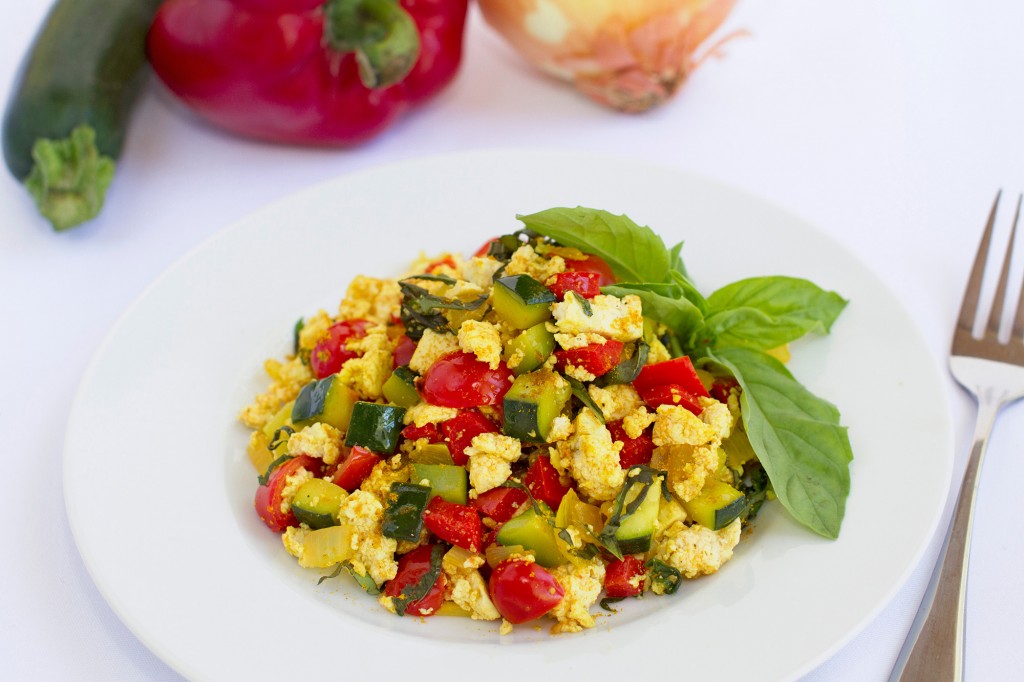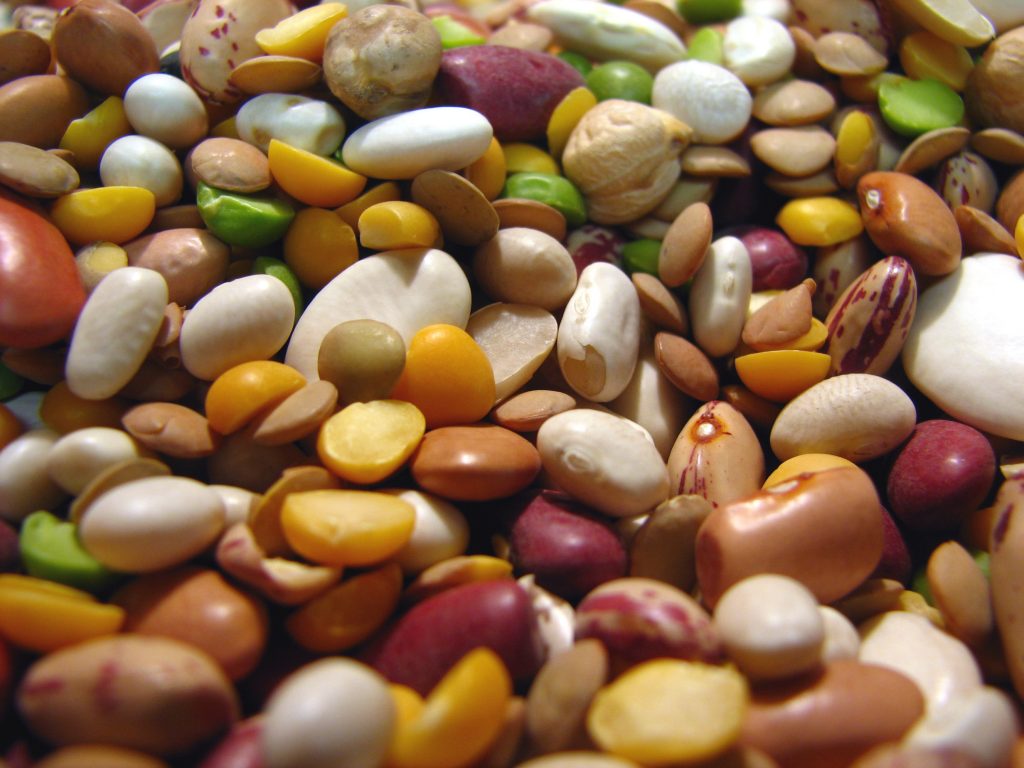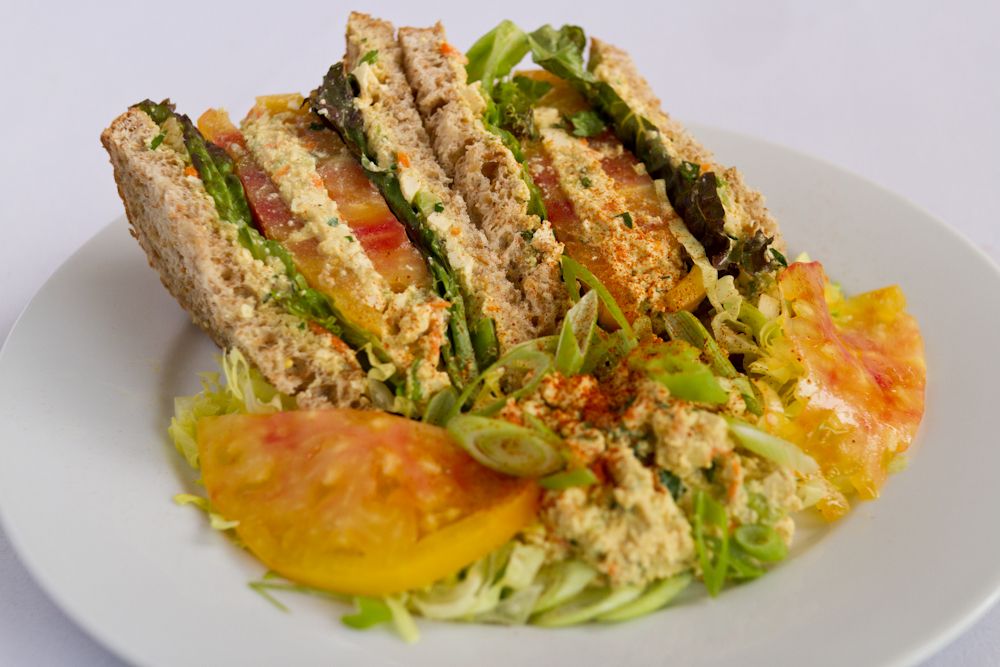
Where’s The Protein? How Vegans Get Enough
Photo Credit: Roger Smith, via Flickr Creative Commons
The most common question vegans get asked is “How will you get your protein?” The question that should be asked instead is: How much protein is “enough”?
Protein has long been the “star” of the plate—but the latest science shows that Americans are eating twice as much protein as they need. This amount mostly comes from animals, given that American are the second highest consumers of meat in the world. We don’t hear enough that this overconsumption of protein comes with real health risks. The type of protein—animal versus plant—makes a difference. Protein that comes from animals as opposed to plants can increase a person’s chances of developing chronic diseases such as kidney, heart disease, diabetes, and cancer.
It’s easy to meet your protein needs as a vegan. Just one cup of plants can pack it in
Protein is a vital component of good nutrition. It’s essential for building and maintaining muscle, and optimal health. But should it always be front-and-center on the menu? Below, I answer key questions about the risks and rewards of protein consumption.
How Much Protein Do I Really Need?
The U.S. “Recommended Dietary Allowance” (RDA) says that we need only 0.8 grams of protein per kilogram of body mass, which is equivalent to about 0.36 grams of protein for every pound we weigh. So a 130-pound woman would need 46.8 grams of protein, and a man who weighs 180 pounds would need about 64.8 grams.
What’s The Problem With Too Much Protein? Do Animal And Plant-Sourced Proteins Have Different Effects?
A 2014 study that looked at 6,318 over-age-50 adults of all ethnicities, education levels and health backgrounds, found higher occurrences of cancer, diabetes, and early death occurred in those who eat excess protein. The high-protein diet studied was one that featured 20% or more of calories from protein. Animal protein accounted for two-thirds of the total protein consumed on average. The researchers found that beans and other plant-based proteins did not cause the same problems, even over 20% of the calories consumed protein.
A 2017 study published in the Journal of Renal Nutrition shows a link between animal protein intake and the chronic kidney disease (CKD). The study found that a plant-based approach helps to protect and maintain the health of our kidneys.
Do Athletes Need Animal Protein?
No. It’s a common fallacy that athletes, superheroes or big energy burners need to frontload proteins. Exceptional athletes of many types are eating diets devoid of meat. They include Wimbledon star Venus Williams, iconic Olympian Carl Lewis, NFL quarterbacks, high- profile ultra marathoners and body builders, and cyclists. Vegan athletes doing heavy-duty endurance work or who are in the beginning stages of training may have slightly higher protein requirements (ranging from .36 to .86 grams per pound). Many magazines promote that athletes should consume large quantities of protein, but the scientific evidence isn’t there.
Does Age Figure Into Protein Guidelines?
From birth to your third decade, muscles grow larger and stronger. But muscle mass begins to decrease at some point in your 30s. People who don’t exercise or move around regularly can lose as much as 3% to 5% of their muscle mass each decade after age 30. Even if you do get out to the gym every day, you’ll still have some muscle loss. So perhaps it’s not surprising that people over 65 need more protein. A study published in 2013 shows that the most mature adults do need more protein than younger adults to promote recovery from illness and maintain function. (And scientists are continuing to track the issue.) While older people do need to account for changes in protein metabolism, the increased protein need is really not so big: from .8 gm / kg to 1.0 -1.3 gm per kg.
As a Vegan, How Will I Get Enough Protein?
If you’re a vegan, you’ve heard it. If you’re not, you’ve probably asked about it. Rest assured that vegans who eat a healthy whole food, plant-based diet of beans, lentils, whole grains, and produce get plenty of protein.
In 2013, the Journal of the Academy of Nutrition and Dietetics published the largest study to date on this issue. The study validates that eating 100% plant-based, vegetarian foods provides more than enough protein to fuel the body. The study compared the nutrient profiles of about 30,000 non-vegetarians to 20,000 vegetarians, and about 5,000 vegans, flexitarians (vegetarian most of the time), and 5000 pescetarians (with fish, but no other animals in the diet). It showed that vegetarians and vegans get 70% more protein than they need every day and meat eaters much more protein than they need.
Meeting Your Vegan Protein Needs
It’s true, however, that a vegan may have slightly higher protein needs. In this case, you can adjust for differences in digestion—up to .41 grams per pound. For example: if you weigh 150 pounds, you would need about 61 grams of protein a day (150 x 0.41 = 61 grams).
It’s easy to meet your protein needs as a vegan. Just one cup of plants can pack it in:
- One cup of beans provides 16-18 grams.
- Soy foods like edamame, tofu or tempeh top in at 20-30 grams per cup.
- Whole grains like oatmeal and brown rice have about 6 grams, with quinoa at 9 grams.
- Even a simple cup of cooked spinach has over 5 nutrient-rich grams of protein.
Here’s an example of a simple vegan day with 64 grams of plant-based protein:
- Breakfast: oatmeal and berries (7 grams per cup) cooked in soymilk (7 grams per cup);
- Lunch: salad and veggie burger on whole grain bread (3 grams plus 13 grams and 8 grams respectively)
- Dinner: lentils, brown rice and spinach – (18 grams per cup of lentil plus 8 grams with brown rice and spinach)
Not only are you getting all the protein you need, you receive added health benefits. You get more fiber, antioxidants, pre- and probiotics, high nutrient profiles – and even flavor.
If you just can’t picture a plate without a steak, hamburger, chicken or fish, visit our Ornish Sample Three-Day Menu. This menu provides plenty of plant-based protein ideas—and an average protein content of 80 grams per day (21% of total calories, with only 10 % of them from fat with no cholesterol).
The upshot is that you can stop worrying about getting enough protein and begin planning the many ways to get just enough for ideal health.
How will you get the right amount of protein today?








